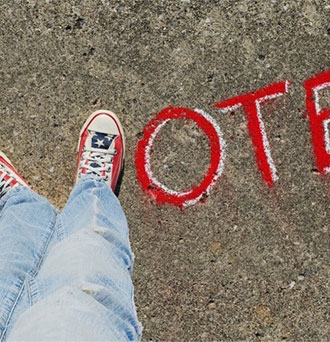
I bow to no one in my respect for former EPA Administrator Gina McCarthy, but she missed the mark somewhat in her analysis of the Office of Management and Budget's proposed evisceration of the Environmental Protection Agency:
"This budget is a fantasy if the administration believes it will preserve EPA's mission to protect public health," Gina McCarthy, who served as the agency's leader from 2013 through the end of the Obama administration, said in a statement Wednesday. "It ignores the need to invest in science and to implement the law. It ignores the lessons of history that led to EPA's creation 46 years ago. And it ignores the American people calling for its continued support."
Sadly, support for the EPA's pre-Pruitt priorities has been lacking among the American electorate; if voters generally recognized the threat posed by human-caused climate change and the EPA's crucial role in reducing carbon, the House, Senate, and White House would not be in the clutches of climate deniers.
As Nathaniel Stinnett of the Environmental Voter Project noted late last year, those who do recognize the threat posed by human-caused climate change haven't always consistently shown up at the ballot box to support climate hawks on Capitol Hill:
Approximately 20.1 million environmentalists are registered to vote, according to Environmental Voter Project research. But in the 2014 mid-term elections, only 4.2 million of them voted, and in the 2012 presidential election barely 10 million of them voted...
Millions of long-registered voters likely stayed at home on Election Day [2016], which is particularly bad news for the environmental movement, because we tend to be poor voters.
Regardless of party affiliation, environmentalists need to address their turnout problem. We need to start voting for one simple reason: Politicians want to win elections. To do that, they focus on issues of importance to voters, not non-voters...
Still, there's a real opportunity hidden in these statistics. Although voters don't prioritize environmental issues, non-voters do. Large majorities of Americans support government action to address climate change and protect the environment. Furthermore, committed environmentalists already go to great lengths to act on their beliefs: They diligently recycle, they bike to work, and they install solar panels on their roofs, all of which require much more time and effort than voting.
In short, millions of Americans are already fully persuaded environmentalists; now we just need to change our habits and start voting. Fortunately, changing people's habits is much easier than changing their minds.
Yes, the Women's Marches were huge and historic. Yes, the planned marches in April in defense of science and in support of climate action will be significant. However, all the marches, protests, signs and hats in the country will not turn back Trump's tyranny. Only voting can do that.
Speaking of voting, Washington Monthly founding editor Charles Peters has a fascinating piece in the New York Timesabout the political and cultural forces that created the Trump electorate in formerly Democratic strongholds such as West Virginia. Peters observes:
[W]hen the average American feels looked down on, his interests minimized or ignored, he can not only become less generous, he can also sometimes become downright ugly...
It is not going to be easy for liberals to win back red states like West Virginia. Rush Limbaugh, Fox News and Donald Trump have been too successful in encouraging ugly feelings like the senseless hatred of Barack Obama. But liberals can start on the road back if they stop wounding themselves, advocate fair play for all, and instead of looking down on Trump voters as a bunch of boobs and bigots, listen to their [legitimate] concerns. If we don't listen, how can we persuade?
John Lydon declared three decades ago that anger is an energy - and as Peters notes, that anger has driven right-wing voters to the polls consistently for years, bringing us to this moment of moral crisis.
That raises the question: why can't progressive anger be harnessed the same way politically? By all rights, the degradation of our planet, the destabilization of our democracy, the horror of handgun violence and the injustice of income inequality, among other issues, should serve as a constant impetus for progressive turnout, the way guns and abortion serve as a constant impetus for right-wing turnout.
"Resistance" will be futile if those horrified by Trump's agenda don't commit themselves to becoming consistent voters in the future. Even if Trump loses in 2020, another right-wing reactionary will come down the pike sooner rather than later, and only sustained progressive turnout will prevent the next Trump from seizing power. Plenty of Americans consider themsleves "woke" now, but what happens if they go right back to sleep once Trump leaves office?
